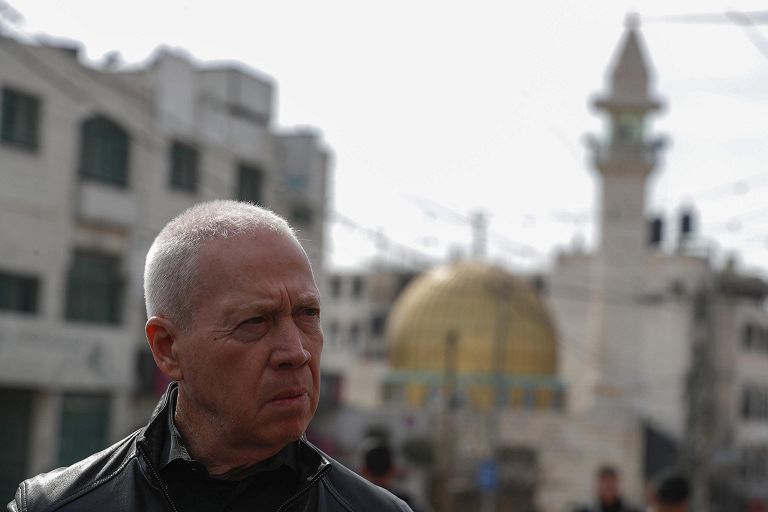A record 630,000 people took to the streets in major Israeli cities to protest the controversial judicial reform on the twelfth consecutive Saturday of demonstrations, the day Defense Minister Yoav Gallant publicly called for the legislation to be stopped, the first member of the government to do so. Shortly afterwards, the Minister of Agriculture, Avi Dichter, also asked to "pause" the reform process. The central demonstration in Tel Aviv has about 300,000 people; 65,000 people demonstrated in Haifa, 22,000 in Jerusalem and 20,000 in Beersheba. Protests in more than 120 different parts of the country, according to the "Umbrella Movement of Resistance against Dictatorship in Israel," an organization of several civil groups.
Police arrested at least three people in Tel Aviv when dozens of protesters blocked the Ayalon Highway, one of the city's main thoroughfares, and pulled out water cannons to disperse the gathering. After twelve consecutive Saturdays of mass demonstrations since the announcement of the controversial judicial reform, the protest movement is gaining momentum as legislation passes scrutiny in the Knesset. "I say it loudly and publicly: for the sake of the State of Israel and our children, we must stop this legislative process," Gallant, leader of one of Israel's key ministries and a veteran of Prime Minister Benjamin Netanyahu's conservative Likud party, said in a televised address.
"We were not born yesterday and we are not protesting against the temporary freezing of the judicial coup. We will not sleep. We demand the full repeal of the legislation and, until then, the struggle will only intensify," protest organizers said after Gallant's speech.
Two parliamentarians and influential Likud figures, Yuli Edelstein and David Bitan, supported the defense minister's call to halt judicial reform. The election of judges – which gives the government almost total control over the judges' selection committee – is expected to be approved next week. The civil groups that promoted the protests have in fact called for a "week of paralysis" with strikes and daily protests in several cities, in particular in front of the homes and offices of ministers and parliamentarians of the coalition and the Knesset, on Wednesday, the day on which the law is expected to be approved.
Handle
Israeli Defense Minister Yoav Galant

